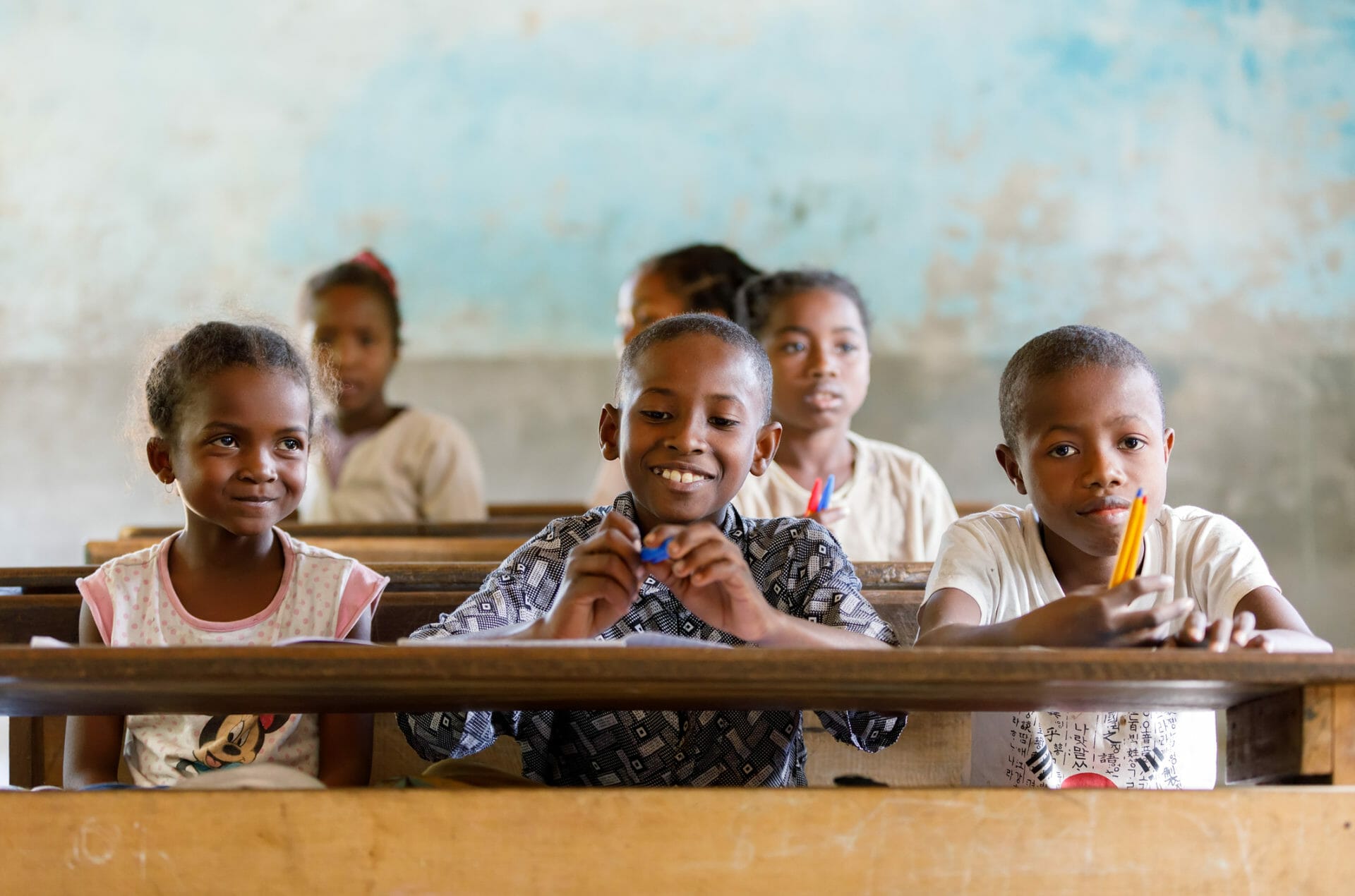News > Blog
Global Communities to Support School Meals in Madagascar
Published 10/15/2021 by Global Communities

USDA awards $25 million for inaugural McGovern-Dole school feeding project
Silver Spring, Md. – On October 1, 2021, the U.S. Department of Agriculture selected Global Communities to lead a consortium of partners in implementing the first McGovern-Dole International Food for Education and Child Nutrition (McGovern-Dole) project in Madagascar.
The new project, known as Mianatra (“Learn” in Malagasy), will be conducted in close collaboration with the Government of Madagascar, and alongside well-known partners such as Catholic Relief Services, FHI360 and Malagasy Mahomby. Throughout our work, we will collaborate with Government of Madagascar ministries at all levels, including the Ministry of Education, National Office of Nutrition, Ministry of Public Health, Ministry of Water, Sanitation and Hygiene, and the Ministry of Agriculture, Livestock and Fisheries.
“Our organization has worked for decades to support education and early learners with healthy meals to fuel their ability to learn and grow,” said David Weiss, CEO of Global Communities. “We are thrilled to add Madagascar as a new country entry for our organization and look forward to continuing the work we care most deeply about in partnership with parents, teachers, government officials and other local stakeholders.”
Over the life of the five-year project, Mianatra will provide 4,020 metric tons of commodities, specifically rice, beans and vegetable oil, donated by the U.S. Department of Agriculture (USDA), as well as funds to procure locally grown and purchased food. These food commodities will be used to provide daily school meals to an estimated 64,177 preschool and primary school students from 130 schools in Southern Madagascar.
Mianatra is one of 10 new projects USDA is funding in 2021 in addition to 40 projects already underway in 30 countries. Global Communities currently implements 5 of those USDA-funded school feeding projects in countries including Guatemala and Tanzania, reaching more than 300,000 primary school students with 16 million healthy meals last year alone.
In addition to providing school meals for students’ increased enrollment, attendance and attentiveness, Mianatra will also seek to improve the quality of education by providing teaching and learning materials, training teachers, school administrators and school management committees on best practices, and constructing school latrines and wells. Global Communities’ integrated school feeding approach focuses on mobilizing and strengthening the capacities of local governments, schools and communities for sustained benefits to education, health and nutrition.
“The ultimate goal of the McGovern-Dole Program is to bring about sustainable, lasting change,” said Deputy Secretary of Agriculture Jewel Bronaugh. “We’re not just providing food, we’re also investing in education and working to ensure that the communities we serve will ultimately be able to continue school feeding and related activities on their own or with local support.”
Since the McGovern-Dole Program was established in 2002, it has benefitted more than 31 million children in 51 countries and utilized more than 1.3 million metric tons of donated U.S. commodities. By providing school meals, teacher training and related support, McGovern-Dole projects help boost school enrollment and academic performance, with a special focus on girls. In areas where the COVID-19 pandemic has forced schools to close, project implementers have also pivoted to provide take-home rations for students and their families.
###
About Global Communities
Global Communities works at the nexus of humanitarian assistance, sustainable development and financial inclusion, reaching millions of people with community-based programs in more than 35 countries. We bring together local ingenuity and global insights to save lives, advance equity and secure strong futures. Global Communities achieves this mission in collaboration with a wide range of public and private sector partners, including communities directly affected by poverty, disasters and conflict. We envision a world of expanded opportunity, where crises give way to resilience and all people thrive. For more information, visit www.globalcommunities.org.
